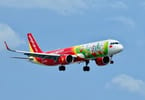Fa'aopoopo i le fa'aaliga i le vaiaso nei a le US Department of Transportation e uiga i se tulafono ua fa'atūina e ta'ua o le 'Enhancing Transparency of Airline Ancillary Service Fees' - e a'afia ai e le na'o kamupani va'alele a Amerika ae o so'o se kamupani va'alele e lele 'i, i totonu pe mai' i le US - o tali mai le lua kamupani vaalele tekonolosi a Belvera Paaga: Digitrips ma Kyte.
Emilie Dumont, Managing Director of Digitrips – the B2B travel seller whose companies, including France’s leading OTA Misterfly, have sold over 5 million flights since it was founded in 2015 – comments:
“The issue of fare transparency when it comes to booking a flight ticket is one that understandably frustrates many travellers – and in particular touches a raw nerve for parents travelling with small children. So in that respect anything that can be done to produce clear guidance and a level playing field when it comes to displaying data should be welcomed, whether that be in the US or Europe or elsewhere.
“However, for this to really work it requires not just information about prices to be displayed (i.e. available at the point of purchase) but also comparable – and by that I mean something the consumer can both filter for and then order according to price. Without this consumers are left having to search through details of multiple flights (and probably displayed and explained in varying ways).
“And filterable price comparisons is where this topic gets incredibly complicated. When it comes to ancillaries there are just so many variables, and not all are offered by every airline or in a comparable format. For example 10k, 15kg, 20kg and 23kg baggage options or different ‘categories’ of seat. Even those that should be comparable are often given different names. Can you really filter and order all of those in some meaningful way consumers can understand at a glance? Hard to imagine, if it was possible someone would have done this.
“Add to this complication non-ancillary but important considerations like cancellation fees. Some allow you to cancel with credit in vouchers, some up to the first flight leaves and so on. Or travelling with children, where you can both have them on your lap or next to you (and their age affects these things too differently according to the airline). Change of date travelling, credit card processing fees, loyalty programs, upgrades, the list goes on. How do you filter for all of those accurately? The honest answer is you can’t really.
“An airline ticket used to be a relatively simple commodity that was standardized around the world but the advent of low-cost-carriers has resulted in unbundling, providing us with as many variables as say buying a car (or choosing a coffee at Starbucks!). Navigating through all of that is not going to happen with the click of one button.
“Those most motivated to provide consumers with the appropriate information, filters and retailing experience are either the airlines or the travel intermediaries. Those that satisfy their needs and don’t leave them feeling cheated gain repeat business, whilst those that don’t…well don’t. This is where bricks-and-mortar travel agents really win their fee and this is why so many families often rely upon them.
“Helping our B2B clients gain repeat business is what motivates us most and that’s why at Digitrips all of the flights we display across our many brands are always accompanied by all the most relevant information about prices and baggage allowances in a consistent way that we know from experience travellers find relevant (but not too much information to confuse them or stop them buying).”
Alice Ferrari, CEO and Founder of Kyte, an API for airlines to sell NDC content, adds:
“In most cases the information required by this potential new law is already available from most airlines on their dot com direct channel website, but perhaps admittedly less so when their content is being sold via intermediaries (whether online or offline).
“This is where better technology and processes linking airlines to intermediaries can benefit and in part this has been one of the drives of NDC over the last years.
“Ultimately though the biggest driver of customer service innovation and change in any industry comes from the leading players who are motivated to do so by the prospect of winning repeat business from satisfied customers. History has shown us that legislation rarely has the same impact, and can sometimes be counterproductive.
“In that respect for me this attempt by the government to intervene in the marketplace is a worrying concern we should watch closely. It may well be the beginning of a trend towards further regulations which will in effect force airlines to re-bundle together products into a ‘one size fits all’ standard in the way they were in the past.
“Should that happen it would restrict consumer choices and ultimately push prices back up, taking us back to the non-competitive and stale aviation marketplace we saw up until the advent of low-cost-airlines in the 1990s. Does anyone really want that?”






















